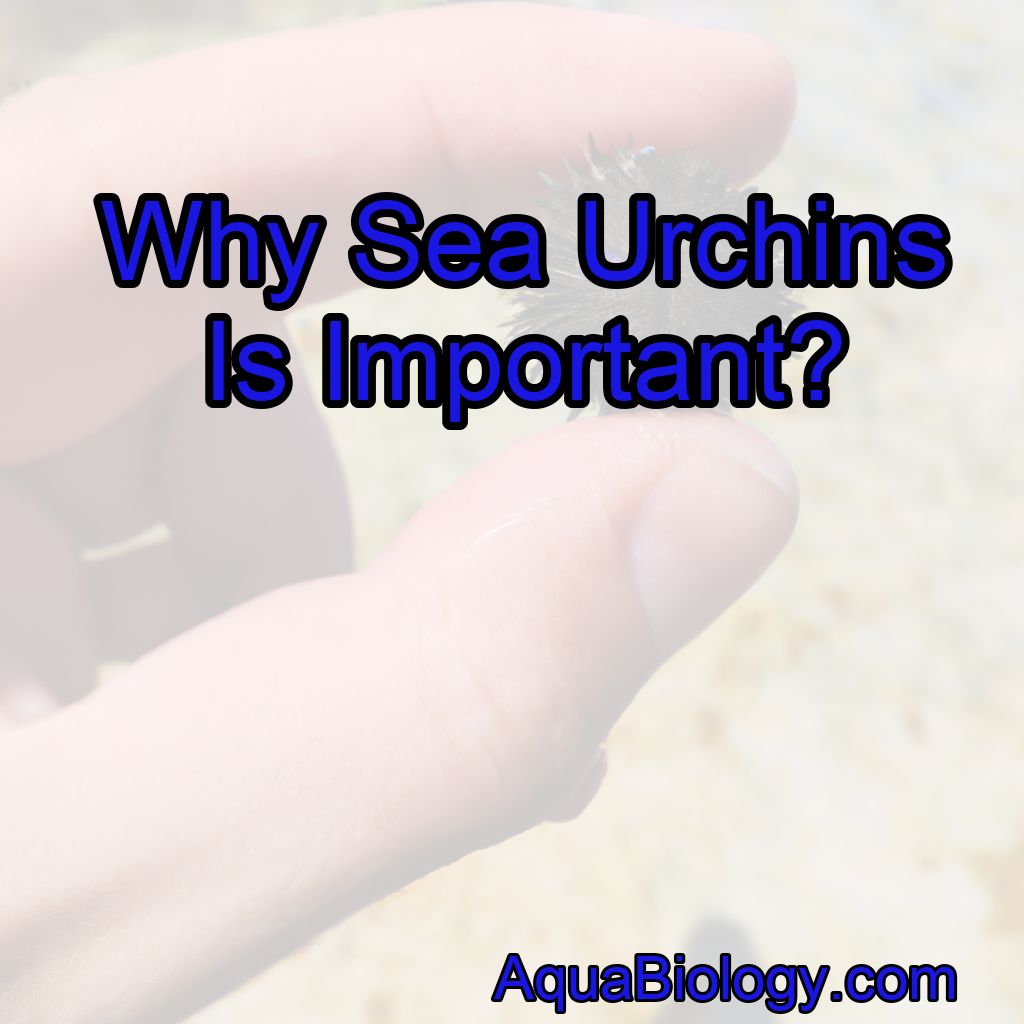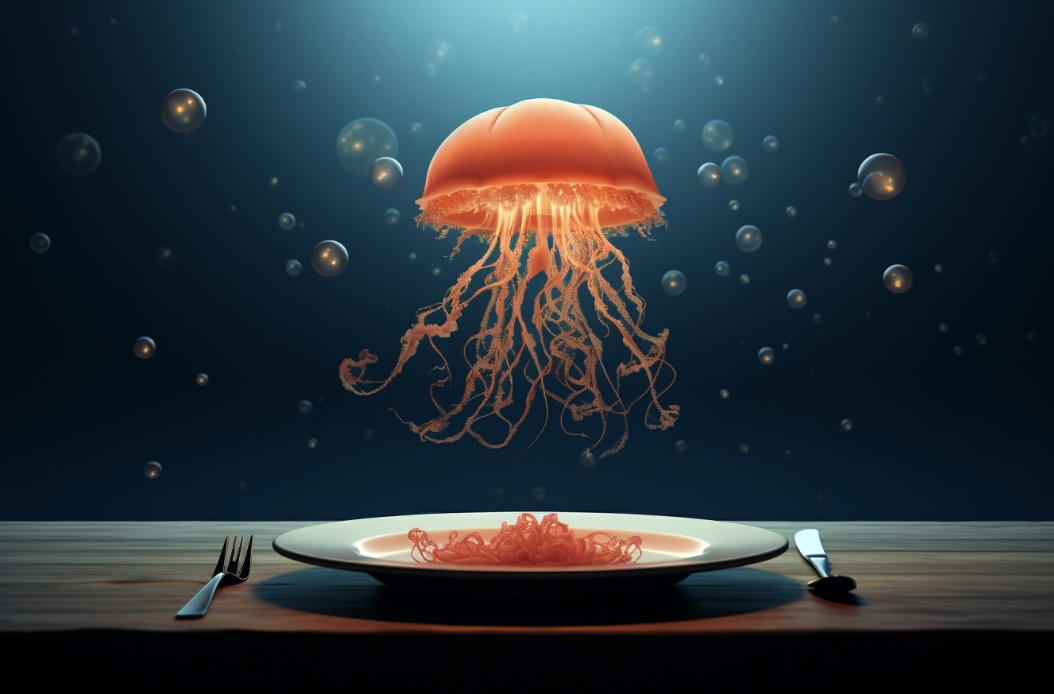Sea urchins, also known as echinoids, are fascinating creatures that play a vital role in marine ecosystems. As a marine biologist who has spent countless hours studying these spiky creatures, I have come to appreciate their importance in our oceans.
Sea urchins are important because they help maintain the balance of marine ecosystems by controlling algae growth.
In this blog post, I will delve into the reasons why sea urchins are important and how they contribute to the health and balance of marine ecosystems.
1. Sea Urchins as Ecosystem Engineers
Sea urchins are often referred to as “ecosystem engineers” due to their ability to shape and modify their environment. These creatures use their specialized mouthparts, known as Aristotle’s lantern, to graze on algae and other plant material on rocky surfaces.
By doing so, they prevent the overgrowth of algae, which can smother other marine organisms such as corals and seagrasses.
In areas where sea urchins are abundant, they can create what is known as an “urchin barren.” These barren areas are characterized by a lack of macroalgae and are often dominated by bare rock or sand.
While this may seem unappealing, these barren areas actually serve a purpose.
They provide refuge for small invertebrates and juvenile fish, creating a nursery habitat for many species.
2. Sea Urchins as Food Sources
Sea urchins are a valuable food source for many marine organisms.
Predators such as sea otters, lobsters, and certain species of fish rely on sea urchins as a staple in their diet.
Without sea urchins, these predators would have to find alternative food sources, potentially leading to imbalances in the food chain.
Humans also harvest sea urchins for culinary purposes. The roe, or eggs, of certain species of sea urchins are considered a delicacy in many cultures.
However, it is important to manage sea urchin harvest sustainably to prevent overfishing and ensure the long-term health of their populations.
3. Sea Urchins and Coral Reefs

Coral reefs are one of the most diverse and productive ecosystems on the planet, and sea urchins play a crucial role in their health. As mentioned earlier, sea urchins graze on algae, including the fast-growing and potentially harmful macroalgae that can overtake corals.
By keeping algal growth in check, sea urchins help to maintain the delicate balance between corals and algae on reefs.
The loss of sea urchins from coral reef ecosystems can have devastating consequences.
Without their grazing activities, algae can quickly take over, smothering corals and inhibiting their growth.
This can lead to the decline of coral reef ecosystems, impacting the many species that depend on them for food and shelter.
4. Sea Urchins and Sand Dollars
Sand dollars, a type of flattened sea urchin, are a familiar sight on sandy beaches. These delicate creatures, with their intricate patterns and round shape, have captured the imagination of many beachgoers.
However, sand dollars are more than just a pretty shell; they serve an important ecological function.
Sand dollars play a role in the process of sediment stabilization.
As they burrow into the sandy substrate, they help to prevent erosion by binding the grains of sand together.
This stabilization is crucial for the health of coastal ecosystems, as it helps to maintain the integrity of beaches and dunes.
5. Sea Urchins and Nutrient Cycling
Sea urchins also contribute to nutrient cycling in marine ecosystems. As they graze on algae and other organic material, they break down the plant material into smaller particles.
These particles are then consumed by other organisms, such as filter-feeding animals and bacteria, which further break them down into nutrients.
The nutrients released through the feeding activities of sea urchins are essential for the growth and survival of other marine organisms.
They contribute to the overall productivity of the ecosystem, fueling the food web and supporting the abundance of life in the ocean.
#
Conclusion: The Importance of Sea Urchins
In conclusion, sea urchins play a vital role in marine ecosystems.
They act as ecosystem engineers, shaping their environment by grazing on algae and preventing overgrowth.
Sea urchins are also an important food source for predators, including humans, and their absence can lead to imbalances in the food chain.
Furthermore, sea urchins contribute to the health of coral reefs by keeping algal growth in check.
They also play a part in sediment stabilization and nutrient cycling, which are crucial processes for the health of coastal ecosystems.
Sea urchins are truly fascinating creatures with a significant impact on the marine environment.
Understanding their importance and taking steps to protect and conserve their populations is essential for the overall health and balance of our oceans.
Five facts about the importance of sea urchins:
1. Sea urchins are ecosystem engineers, preventing the overgrowth of algae and creating important nursery habitats.
2. They serve as a valuable food source for predators, including humans who harvest their roe.
3. Sea urchins help to maintain the delicate balance between corals and algae on coral reefs.
4. Sand dollars, a type of sea urchin, play a role in sediment stabilization on sandy beaches.
5. Sea urchins contribute to nutrient cycling, fueling the productivity of marine ecosystems.
FAQs
What would happen if we didn’t have sea urchins? If sea urchins were to disappear, it would have significant impacts on the marine ecosystem, as they play a crucial role in maintaining the balance of the underwater food chain.
Without sea urchins, the populations of their predators, such as sea otters and some species of fish, would decline, causing a cascade of effects on the entire ecosystem. Additionally, sea urchins help to control the growth of algae, and their absence could lead to an overgrowth of algae, which could cause further ecological imbalances.
What do humans use sea urchins for?
Humans use sea urchins for food, as their roe (eggs) is considered a delicacy in many cultures.
They are also used in scientific research for their unique skeletal structure and their ability to regenerate damaged tissue.
Additionally, certain species of sea urchins are used in traditional medicine for their anti-inflammatory and pain-relieving properties.
Are sea urchins good to eat?
Yes, sea urchins are considered a delicacy in many cultures and are enjoyed raw or cooked in various dishes.
The edible part is the roe, which has a rich and unique flavor.
Are sea urchins good for anything?
Yes, sea urchins are important for maintaining a healthy marine ecosystem.
They help control the growth of algae and other vegetation, which can become overgrown and harm other marine life.
Sea urchins are also a source of food for many predators, such as otters, sea stars, and some fish species.
Additionally, their shells can be used in jewelry and decorative items.
What does sea urchin taste like?
Sea urchin has a rich, buttery and slightly sweet taste with a slightly salty and briny flavor.
How are sea urchins bad for the environment?
Sea urchins can be bad for the environment when their population grows out of control and they overgraze on kelp forests, leading to the destruction of the habitat for many other marine species.




